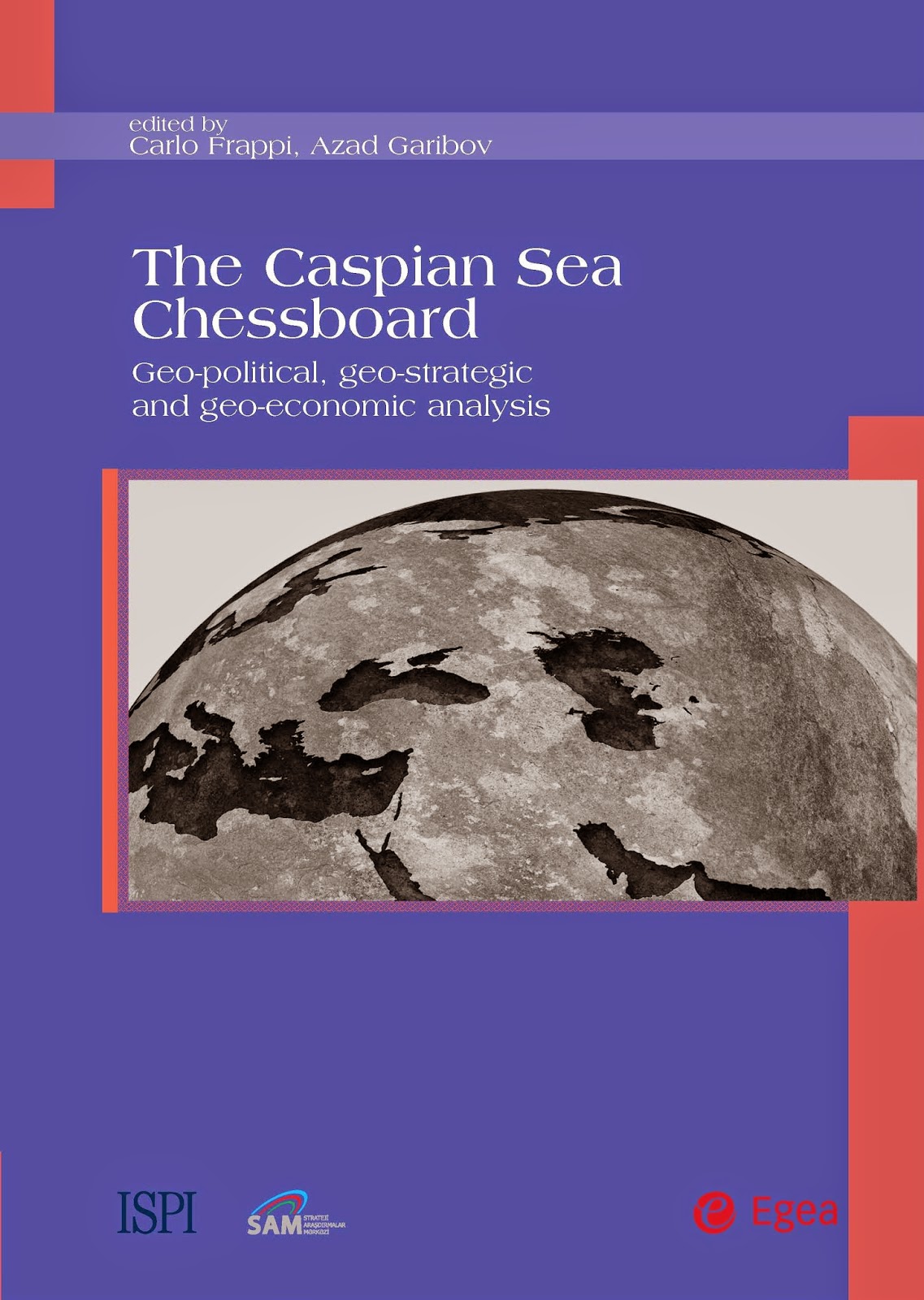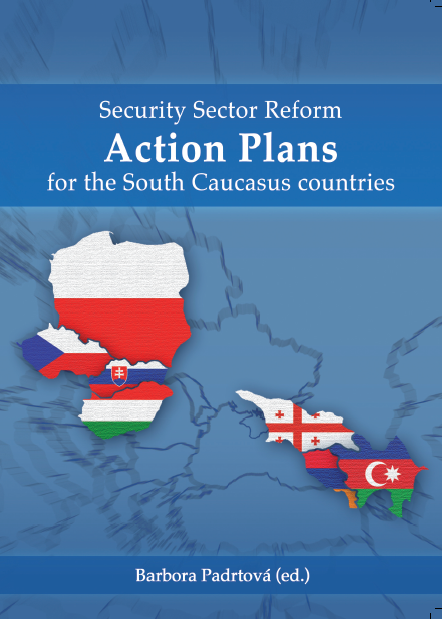Please read my new article on Caspian 'Sea' and Its International Legal Status published in new book by ISPI (Italy) and Center for Strategic Studies (Azerbaijan) - "The Caspian Sea Chessboard: Geo-political, geo-strategic and geo-economic analysis" Carlo Frappi and Azad Garibov eds. that can be found here.
Please read my new article on Security Sector Reform Action Plan for Azerbaijan written in cooperation with Czech colleague Vít Střítecký in new book by Centre for European and North Atlantic Affairs - "Security Sector Reform Action Plans for the South Caucasus Countries" B.Padrtová ed. that can be found here.
New book: "Nagorno-Karabakh Conflict in International Legal Documents and International Law"
0
Tuesday, May 27, 2014
My new book called "Nagorno-Karabakh Conflict in International Legal Documents and International Law" was just published by Center for Strategic Studies under the President of the Republic of Azerbaijan (SAM). For those interested in reading it's digital copy can be found here.
Kamal Makili-Aliyev
Doctor of Laws (LL.D)
27.05.2014
It is well
understood that NATO presence in South Caucasus is very limited due to the
geopolitical factors of presence of such regional players such as Russia and
Iran. Reluctance of NATO to engage South Caucasian states more closely after
the events of 2008 during the Russian-Georgian war is understandable, however
it may seem overcautious. At the same time if the situation changes and there will
be expectations of some sort of agreement on Nagorno-Karabakh problem, security
guarantees will play one of the major roles in stabilizing and negating
possible tensions that the process of resolution may bring to the region.
NATO has considerable
experience when it comes to peacekeeping operations and maintenance of peace
and security. Balkans, Libya and Afghanistan are some of the examples of such
activities. Positive and negative aspects of these experiences maybe still
debatable, however it is undeniable that they have showed that NATO is capable
of carrying out such operations even in the large scale missions like
Afghanistan. These situations are also indications of the changing role of NATO
as security organization. The threats to North Atlantic area do not originate
from “state-actors only” anymore. Non-state actors are the new challenges to
the global security – terrorism, cyberwarfare and weapons of mass destruction
(WMDs) are the new threats that NATO faces. The ability of organization to
acknowledge and adapt to new realities will play crucial role in the future of
NATO. NATO will have to redefine the approaches to deadlocked conflicts and
non-conventional threats to be able to address the pressing issues of regional
and international security.
Arguably as the
situation changes with the nature of threats, so does the situation change with
their scope. In the new age of security frameworks, conflicts in non-member
states bordering NATO, start to become new security challenges for the NATO as
the possibility of unconventional warfare spill-over into territories of NATO
members is a reality and not a myth anymore. One such example is the situation
in Syria.
Nagorno-Karabakh
is another conflict that is on the border of NATO. Though far from the active
phase it still remains a threat to the international peace and security, and
thus to the NATO as well. Ultimately, NATO should be interested in the
resolution of the conflict and engagement in the situation with intent to help.
However geopolitical realities do not allow for such a close engagement and
presence.
What can be done
in such a situation? First of all there is a lack of understanding and
compromise in terms of strict “red lines” drawn between NATO and major regional
power in the region of South Caucasus – Russia. Naturally, given the changing
nature of threats to the international security NATO and Russia should
cooperate to address unconventional threats from non-state actors that affect
both parties. The same goes to protracted unresolved conflicts on their
borders. At the same time it is understandable that both NATO and Russia have
their separate political and security agendas that may be in conflict with each
other.
Nonetheless,
when it comes to Nagorno-Karabakh conflict the compromise needed that may
satisfy all the interested parties. One such compromise may be a joint
peacekeeping operation of NATO with Russia-led CSTO. In that way both
organizations would have equal amount of participation to keep each over in
check and balance. To satisfy parties to the conflict, namely Armenia and Azerbaijan,
the participation of troops from the countries of the OSCE Minsk Group
co-chairs as well as from the conflicting states should be excluded to ensure
impartiality of forces. At the same time all these aforementioned states may
provide financial assistance to NATO and CSTO troops respectively thus ensuring
their own participation and interests in the peacekeeping efforts after some
kind of agreement reached around Nagorno-Karabakh.
Such concept may seem futuristic; however, the
only way to address the new era of threats to international peace and security
is cooperation between military alliances of different political allegiances.
If a proper understanding could be reached, these prospects may not seem
fictional anymore. In any case, compromise over common security concerns may
lead to the transition in the Nagorno-Karabakh conflict and stabilize the
security situation in the South Caucasus.
Kamal Makili-Aliyev
Doctor of Laws (LL.D)
25.01.2014
Subscribe to:
Posts (Atom)





0 comments: